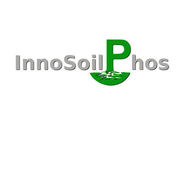Achieving the nutrient reduction objective of the Farm to Fork Strategy. An assessment of CAP subsidies for precision fertilization and sustainable agricultural practices in Germany (2023.0)
Heyl K., Ekardt F., Roos P., Garske B.
Frontiers in Sustainable Food Systems, 7 (),
doi:10.3389/fsufs.2023.1088640
Abstract
The Farm to Fork Strategy of the EU aims at sustainable food systems. One objective of the Strategy is to reduce nutrient losses by at least 50% resulting in at least 20% less fertilizer use by 2030. To this end, Member States are expected to extend digital precision fertilization and sustainable agricultural practices through the Common Agricultural Policy. In this context, this article applies a qualitative governance analysis which aims to assess the extent to which the measures proposed by the Farm to Fork Strategy, i.e., digital precision fertilization and sustainable agricultural practices, contribute to the nutrient objective of the Farm to Fork Strategy. The article analyses how these measures are implemented through the Common Agricultural Policy in Germany and Saxony. Results show that the nutrient objective of the Farm to Fork Strategy itself offers shortcomings. Germany offers some, yet overall limited, support for sustainable agricultural practices and digital precision fertilization. Hence, the Common Agricultural Policy will to a limited extend only contribute to the objective of the Strategy. The results furthermore highlight some general shortcomings of digitalization as sustainability strategy in the agricultural sector including typical governance issues (rebound and enforcement problems), and point to the advantages of quantity-based policy instruments.